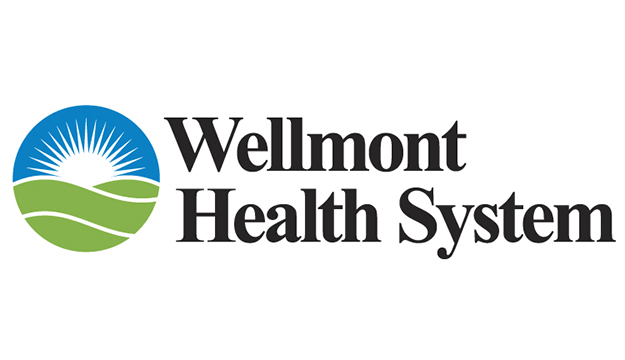By Jeff Keeling
With institutional knowledge as important as ever given the changes swirling around Wellmont Health System, leaders at Wellmont no longer have a long-solid option when financial questions arise: Go ask Alice.
Alice Pope left the system after 16 years to become CFO at HonorHealth, a Scottsdale, Ariz.-based not-for-profit hospital system. Her last day at Wellmont, where she had been CFO since 2012, was April 22. Pope had been tapped to become CFO of a merged Wellmont and Mountain States Health Alliance (MSHA) – temporarily dubbed “Newco” – in the event that merger is approved.
In an interview with The Business Journal, Pope discussed her career, her decision to leave Wellmont, and her thoughts on changes in health care and how they have impacted the budgeting and financial side of operating health care systems.
The nurse and the accountant
When Pope was promoted to CFO of Holston Valley Medical Center in 2003, she brought a 41-year-old newspaper clipping with her as she introduced herself to the hospital’s leadership team. It included an item about Betty Hensley, a nurse at the hospital, then called Holston Valley Community Hospital.
“I wanted them to know that my mother was a nurse, and I have the utmost respect for nurses and clinicians,” Pope said, noting the moment provided one of her favorite Wellmont memories. “I had that newspaper clipping that said Holston Valley Community Hospital and it was from 1962. I think I’ve always kind of stayed in touch with that.”
But young Alice Hensley figured out pretty quickly growing up in Yorktown, Va., that she didn’t want to be a nurse herself. Her father Howard’s job looked better – he was an accountant.
“I saw my dad working Monday through Friday and I saw my mother working shift work, and working nights and weekends, and I said ‘I don’t want to do that. I want to do that Monday through Friday gig. That looks a lot better.’”
Fast forward a few years, and Pope had followed through on her goal. After catching on with Arthur Andersen in Atlanta, marrying, and having two girls, she was in Memphis. She had risen to a senior manager position, but roughly half her work involved travel, primarily to Mississippi and Arkansas. The other half, she was in Memphis, and part of that work involved Baptist Memorial, a large health care system. She had the Monday through Friday. She was ready for Monday through Friday with no travel, and she got it when she went to work for Baptist in 1997.
Three years in financial reporting, general ledger, payroll and the like began familiarizing Pope with health care financial administration. Then the Popes decided to move back to her then-husband’s home base of the Tri-Cities, which is also where both her parents had grown up. Howard Hensley had moved back to the area as well. Wellmont had recently added Hawkins County Memorial Hospital to its fold, and some structural changes created an opening for a new position, system director of finance.
The Wellmont years
The system director of finance stint lasted three years. While it didn’t involve her favorite kind of work, Pope said the budgeting, cost reporting and data analytics – with a specific health care focus – helped fill in knowledge gaps specific to health care. “Now nothing really gets by me because I have that detailed financial knowledge,” she said.
Next came the promotion to her first CFO role, at Holston Valley. That five-year stint strengthened Pope’s skills at managing an income statement as she sought ways to improve revenue and reduce expenses. Other important system-related CFO skills, such as focusing on debt, treasuries and capital, would wait – but not for long. Pope was promoted in 2009 to corporate treasurer, where she added to that systemwide experience.
In 2010, with healthcare reform really hitting its stride, Pope filled in the last important puzzle piece at a time when even veteran CFOs were facing new horizons in the same segment of the job. She became a senior vice president over revenue cycle and managed care.
 “That’s when I got all the experience with insurance companies, negotiating managed care contracts and so forth,” Pope said of the role that lasted until she was tapped to become CFO in August 2012.
“That’s when I got all the experience with insurance companies, negotiating managed care contracts and so forth,” Pope said of the role that lasted until she was tapped to become CFO in August 2012.
She’d also been getting experience with multiple leadership styles at the top, as she was working for her fourth CEO (Denny DeNarvaez) by this point. Wellmont’s first-ever CEO, Eddie George, had been there when she arrived, and been succeeded by Dr. Richard Salluzzo, Mike Snow and then DeNarvaez. The frequent changes (mirrored by CFO changes) have brought their share of stress on employees, Pope said.
“When you do get a new CEO, if we’re being honest, they do change out seats on the bus and that has a ripple effect through the organization,” she said.
CFO rising? Reform elevates the position
The four years Pope served as CFO at Wellmont brought plenty of local news, from Wellmont’s roller coaster strategic options process and DeNarvaez’s sudden departure to Alan Levine’s arrival as MSHA’s second-ever CEO and the merger announcement. Plenty of change was also occurring in the way CFOs act and are viewed in the executive suite, Pope said, as the effects of the Affordable Care Act (ACA) took hold and accelerated.
“I think that the CFO is now viewed as much more of a strategic partner to the executive team, as opposed to just making sure the financials were correct and we were getting paid appropriately and we were maximizing our financial performance,” Pope said.
That stems from changes in reimbursement models – away from fee-for-service or “paying for volume” as Pope said to paying for outcomes – and the steady transition away from inpatient care. In fiscal 2011, Wellmont had 42,070 acute discharges from its hospitals. By fiscal 2015, that number had fallen by 21 percent, to 33,045. During the same period, inpatient surgeries had declined 9 percent, while physician visits had increased by 53 percent from 310,578 to 474,762.
Pope said CFOs help leadership understand opportunities for growth at a time when, “everything is all meshed together now, so quality intersects with reimbursement, reimbursement intersects with strategy and they all intersect with service lines.”
The major changes are also roiling the health care landscape and, as evidenced by the local situation, heightening merger and acquisition activity. That change, too, magnifies the importance of the CFO.
“The CFO, fortunately, is now viewed just as much as a key to strategy and just as much an important part of the executive team. It makes it a lot more challenging, but it makes it a lot more rewarding.”
Pope said the ACA, politically charged as it is, addressed what she sees as one fact: “I think we can all agree that we’re spending too much on health care in the United States. So what it did was at least create a table to have a conversation about what we need to do to spend less and have higher quality.”
Pope turns 50 in June, and expects to see plenty of additional change over the next decade-plus before closing out her career.
“That is pretty exciting, to actually see what happens over the next 10 years. A lot of it might depend on who’s elected president and what changes are made. That is the interesting part about our industry, is so much of it is determined by the federal and state government.”
Speaking of the government, Pope said a major challenge for Wellmont and Mountain States has been Medicaid expansion, or in the case of Tennessee and Virginia, the lack of it. “I don’t think that the Supreme Court really did anybody any favors by saying that each state can determine whether they get to expand Medicaid or not,” Pope said.
“Putting aside your political views on Medicaid and your political views on expansion, our piece of the pie in Tennessee will get smaller. If you look at it from just a pure financial standpoint, Tennesseans are paying more taxes and those taxes are going to the federal government, and then that money is getting reallocated to states that did expand Medicaid.
“I think there is a way that Tennessee can do Insure Tennessee and kind of maintain some sort of equilibrium with these other states.”
Were that to occur, she said, it would help with physician recruitment as well as bottom line financials.
Getting from point A to point B
The move from paying for volume is the right one, Pope believes. Getting to the other side successfully will mean a healthier population and a lower portion of GDP going toward health care. Keys to success, she said, include an accountable health care delivery and payment system, smart use of technology, and greater consumer engagement.
Pope said health care is “barely beginning to scratch the surface” of what electronic health records can achieve. If all providers are on a shared platform, the quality and cost problems created by duplication and repetitive testing can be greatly reduced, if not eliminated.
“When a patient presents at the ER, the physician today knows what the patient tells them and what the tests right there show,” Pope said. “But if that physician had access to a patient’s complete history and could glance through it and see it, just think about the savings that could be had as well as the significant improvement in quality. So I think we’re going to see exponential change and growth in the whole technology area as far as medical records and sharing of information. That’s going to lead to a whole bunch of other issues as far as privacy – it’s going to create a whole other conversation that will be very interesting to see how that all unfolds, too.”
With care predominately funded by taxpayer dollars, Pope said accountability is owed to both taxpayers and patients. Paying for volume (fee-for-service) doesn’t drive things in that direction.
“I think that the reimbursement model of the future is, you’re going to be paid for outcomes. The health care delivery system needs to be accountable for quality, for patient satisfaction and for outcomes.”
If that effort is combined with methods to get consumers more aware of their own personal financial responsibility in the cost of their care, “that could lead to individuals taking better care of themselves physically.”
From Scottsdale with love – really: Thoughts on the local scene
Pope’s role in this sea change won’t happen here. Instead of sticking around for the potential merger of Wellmont and MSHA into a new company for which she had been guaranteed the CFO slot, Pope is heading to a system that was created through a merger three years ago. HonorHealth does about twice the revenues of Wellmont. There is still plenty of hard work ahead, even three years in, Pope said. Though she’s bullish on the Wellmont-MSHA merger, she said after 16 years here, and with one daughter and her only sister in Los Angeles, “it was kind of either now, or most likely finish out my career here, and you know, I really just wanted to go on an adventure.”
“What’s appealing to me about it is that there’s still a tremendous amount of opportunity. Three years after a merger, there’s still a whole bunch of work to be done. Acquisitions are easy. Mergers are challenging.”
Someone else will have to address those challenges from the CFO’s seat should the systems gain approval for a Certificate of Public Advantage in Tennessee and a Cooperative Agreement in Virginia. Pope, who lived through the duplication of services brought on by the MSHA-Wellmont arms race, said elimination of duplication is just one of the merger’s appealing aspects. Another, she said, was summed up best by Dr. Randy Wykoff, the dean of East Tennessee State University’s College of Public Health.
“Anybody who paid attention to what Dr. Wykoff said, it’s clear that health status is based on education and employment and economic opportunities. One of the great things about this merger is that some of the savings can be reinvested in health education, and some of the savings can be then reinvested in expansion, which creates economic opportunity and more jobs. The challenge for this area is that we need more jobs.”
This daughter of a nurse, who said she’ll miss some girlfriends here but maintains a very close relationship with her own daughters, hopes some of the benefits of a local merger find their way to health system employees. A nurse, for instance, doesn’t have to travel far to find significantly higher pay. The Medicare wage index is partly to blame, she said, but reinvesting savings from efficiencies could chip away at those disaparities.
“At a macro level, I just wish there was more money for our employees. It’s very challenging.”





